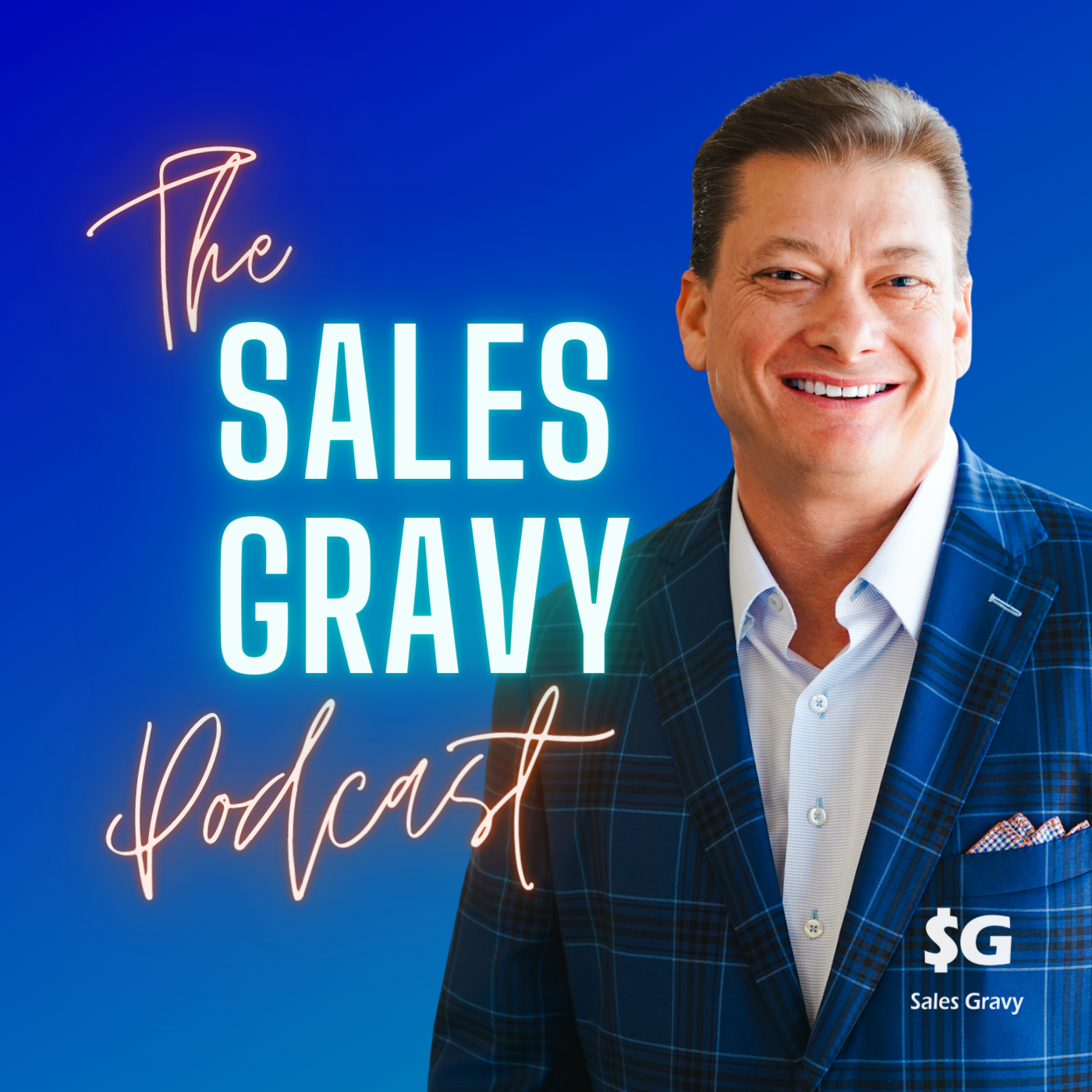

Sales Gravy: Jeb Blount
Jeb Blount
From the author of Fanatical Prospecting and the company that re-invented sales training, the Sales Gravy Podcast helps you win bigger, sell better, elevate your game, and make more money fast.
Episodes
Mentioned books

16 snips
Jul 3, 2025 • 22min
4 Warning Signs You Are Pushing Clients Away
Communication styles can make or break client relationships. A story from Justin Goldstein highlights how frequent outreach can be perceived as annoying rather than helpful. It's essential to tune into clients' preferences, valuing quality over quantity. Personalizing communication, like opting for text over calls or adapting the frequency of check-ins, is crucial. The discussion emphasizes that understanding clients and using emotional intelligence are key to avoiding pitfalls and building lasting trust.

9 snips
Jul 1, 2025 • 17min
How to Stay Emotionally Consistent in Sales—Even on Your Worst Days (Ask Jeb)
What do you do when your emotions sabotage your sales? A sales team discusses the need for emotional consistency to drive performance, especially amid challenges. They explore strategies to enhance growth in competitive markets and the shift from inbound to outbound marketing. The conversation touches on maintaining professionalism despite personal setbacks and how emotional intelligence fosters trust. Insights on routines and mindset show parallels between sales and golf, underscoring the importance of self-talk and supportive environments.

13 snips
Jun 27, 2025 • 18min
5 Game-Changing Sales Insights from Q2 2025
Discover transformative sales strategies that prioritize consistent activity over immediate outcomes. Learn how focusing on disciplined work habits can eliminate the emotional ups and downs of sales. Explore the counterintuitive ‘go for the no’ technique to attract genuinely interested clients. Understand the vital role of unified messaging in building customer trust, which often trumps price considerations. Finally, uncover pricing strategies that can unlock significant revenue growth, empowering entrepreneurs to scale their businesses effectively.

6 snips
Jun 24, 2025 • 15min
How to Spot Dead Deals Hiding in Your Pipeline Before It’s Too Late (Ask Jeb)
Sales leaders often fixate on dollar amounts and close dates, neglecting the real quality of deals in their pipeline. This oversight leads to mismanaged forecasts and wasted efforts on 'dead deals' that will never close. The conversation challenges conventional qualification frameworks like MEDIC and BANT, arguing that they can create a false sense of security. Key strategies include engaging stakeholders effectively and mastering pipeline management for accurate forecasting. Transformative leadership in sales is crucial for accountability and unlocking team potential.

32 snips
Jun 24, 2025 • 10min
Why You Need to Become Obsessed With Process Goals (Money Monday)
In this discussion, the importance of focusing on process goals in sales takes center stage. Drawing inspiration from golf legend Ben Hogan, it emphasizes improving behaviors over fixating on outcomes. Top sellers thrive by cultivating consistent actions rather than getting emotionally tied to individual deals. This mindset shift leads to sustainable success, avoiding the pitfalls of anxiety and poor decision-making that come with an outcome-driven approach. It’s all about the journey, not just the destination.

9 snips
Jun 20, 2025 • 0sec
Why Building Relationships in Sales Skyrockets Your Commission
In this conversation, Steve Pyfrom, Head of Strategy and Sales at Nine Digital and founder of SPP Consulting, shares his journey from pastoral ministry to B2B sales. He emphasizes the importance of building genuine, long-term relationships in sales instead of chasing quick wins. Steve argues that the pressure for immediate results undermines lasting success, urging sales professionals to shift their focus to sustainable customer value. He also highlights the critical skills of active listening and independent thinking to enhance client connections and drive revenue.

Jun 18, 2025 • 17min
Can AI Really Replace Salespeople? (Ask Jeb)
The discussion tackles the overwhelming fear that AI might replace salespeople, clarifying that those who adapt to AI will thrive. AI’s automation capabilities can enhance efficiency, but genuine human connections remain irreplaceable. The podcast highlights the danger of AI in fostering inauthentic communication, as it saturates the market with fake outreach. Ultimately, it emphasizes that while AI can support sales professionals, the human touch—empathy and authenticity—must be preserved to build trust and effectiveness in sales.

16 snips
Jun 16, 2025 • 12min
Busting the Myth About Natural Sales Talent (Money Monday)
Explore the myth of natural sales talent and whether successful salespeople are born or made. The discussion cleverly intertwines personal golf anecdotes, highlighting that consistent practice and good coaching are essential for mastery in both sales and sports. Discover how tools like LinkedIn and AI can enhance prospecting, reinforcing the idea that growth comes from ongoing learning rather than innate ability. It's an engaging reminder that success is a journey shaped by persistence and the right support.

11 snips
Jun 12, 2025 • 52min
The Alter Ego Advantage of Top Performers
In this engaging discussion, Richard Fenton and Andrea Waltz, co-authors of "Go for No!", explore the transformative power of embracing rejection in sales and life. They share insights on how adopting alter egos can enhance performance, highlighting stories of top performers like Kobe Bryant. The conversation dives into overcoming emotional barriers, the importance of human connections in a digital age, and how the mindset shift toward accepting rejection can lead to greater success. Tune in for practical wisdom and inspiration!

9 snips
Jun 10, 2025 • 22min
Stop Chasing Pipeline Multipliers: The Science of Building a Clean Sales Pipeline (Ask Jeb)
Dive into the myth of pipeline multipliers and discover why quality trumps quantity in sales. A caller shares her successful transition from childcare to EdTech sales, highlighting the value of mentorship. Find out how focusing on clean pipelines can lead to better forecasting. Learn the dangers of fake pipeline and how unqualified leads can drown forecasts. This insightful discussion emphasizes disciplined prospecting and meaningful engagements over vanity metrics for a more predictable revenue stream.


